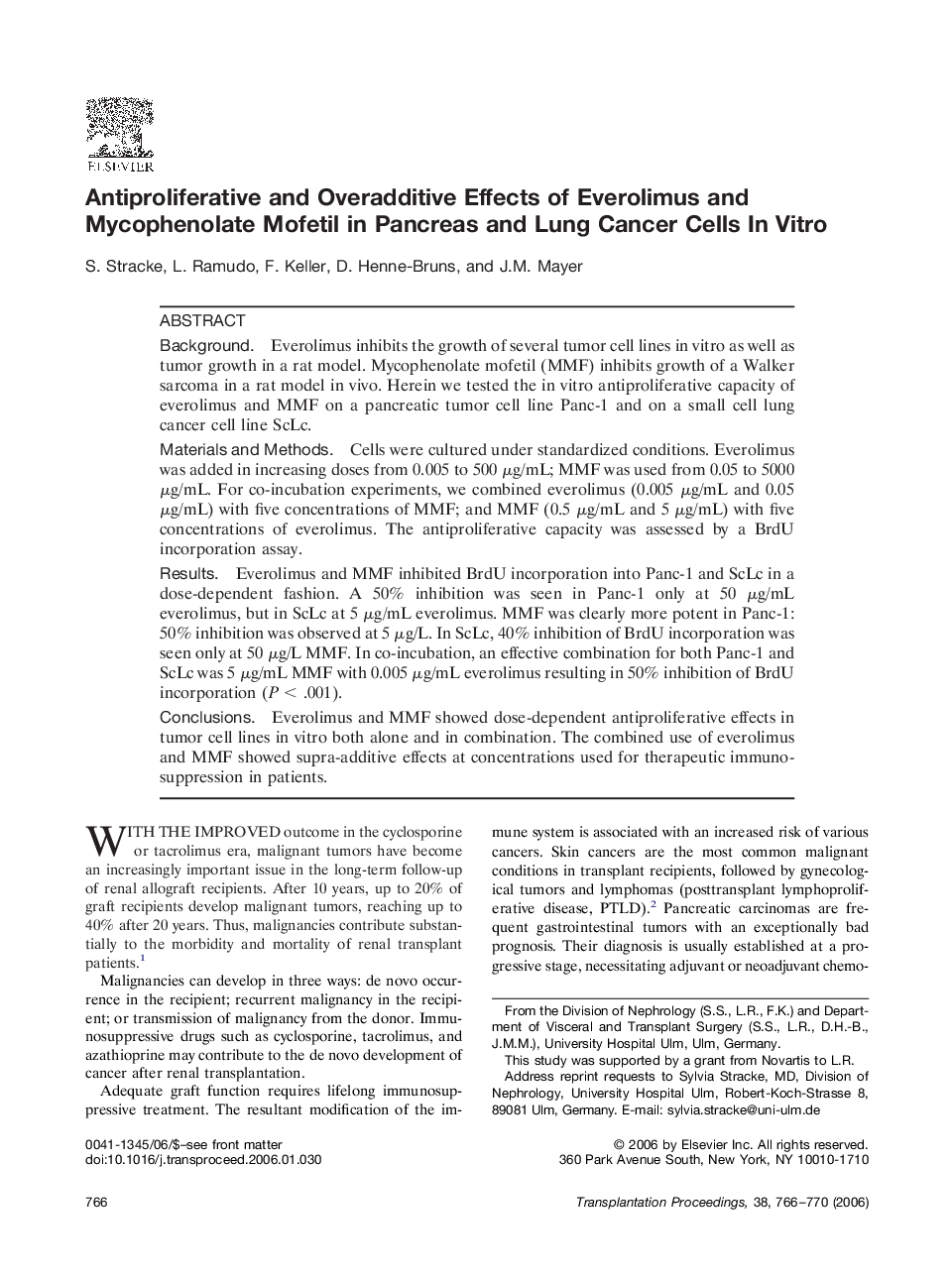| Article ID | Journal | Published Year | Pages | File Type |
|---|---|---|---|---|
| 4263007 | Transplantation Proceedings | 2006 | 5 Pages |
BackgroundEverolimus inhibits the growth of several tumor cell lines in vitro as well as tumor growth in a rat model. Mycophenolate mofetil (MMF) inhibits growth of a Walker sarcoma in a rat model in vivo. Herein we tested the in vitro antiproliferative capacity of everolimus and MMF on a pancreatic tumor cell line Panc-1 and on a small cell lung cancer cell line ScLc.Materials and MethodsCells were cultured under standardized conditions. Everolimus was added in increasing doses from 0.005 to 500 μg/mL; MMF was used from 0.05 to 5000 μg/mL. For co-incubation experiments, we combined everolimus (0.005 μg/mL and 0.05 μg/mL) with five concentrations of MMF; and MMF (0.5 μg/mL and 5 μg/mL) with five concentrations of everolimus. The antiproliferative capacity was assessed by a BrdU incorporation assay.ResultsEverolimus and MMF inhibited BrdU incorporation into Panc-1 and ScLc in a dose-dependent fashion. A 50% inhibition was seen in Panc-1 only at 50 μg/mL everolimus, but in ScLc at 5 μg/mL everolimus. MMF was clearly more potent in Panc-1: 50% inhibition was observed at 5 μg/L. In ScLc, 40% inhibition of BrdU incorporation was seen only at 50 μg/L MMF. In co-incubation, an effective combination for both Panc-1 and ScLc was 5 μg/mL MMF with 0.005 μg/mL everolimus resulting in 50% inhibition of BrdU incorporation (P < .001).ConclusionsEverolimus and MMF showed dose-dependent antiproliferative effects in tumor cell lines in vitro both alone and in combination. The combined use of everolimus and MMF showed supra-additive effects at concentrations used for therapeutic immunosuppression in patients.
